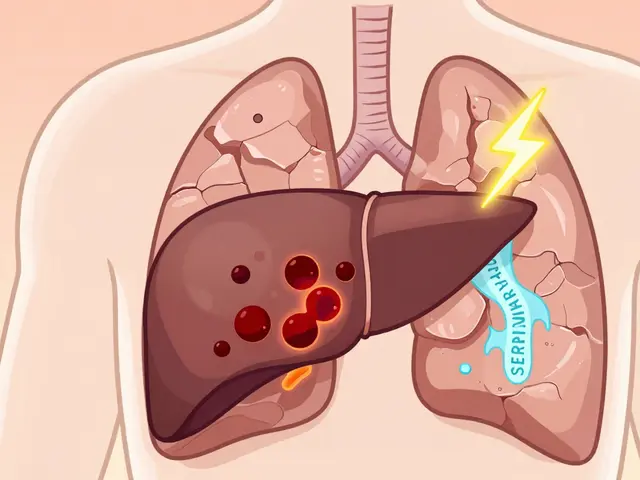Natural bronchodilators: simple ways to open your airways
Natural bronchodilators are foods, herbs, and habits that can help relax airway muscles and ease breathing. They won't replace prescribed inhalers, but they can support breathing in mild cases or during flare-ups when used safely. This guide lists options, how they work, and what to watch.
Natural options
Magnesium helps relax muscles throughout body, including tiny muscles around airways. Dietary sources include spinach, pumpkin seeds, and almonds, or you can try supplements after checking with your doctor. Studies show magnesium sulfate given intravenously can help severe asthma in hospitals, while oral magnesium might offer modest benefits for some people with asthma.
Ginger has natural anti-inflammatory properties that may ease airway swelling. You can drink ginger tea, add fresh ginger to food, or take a standardized supplement. A few small trials report improved lung function and fewer symptoms when ginger was used alongside regular asthma care, but results vary.
Omega-3 fats from oily fish and flaxseed reduce inflammation and can support lung health over time. Eat salmon, mackerel, or chia seeds two or three times a week, or consider a fish oil supplement. People who replace processed snacks with omega-3 rich foods often notice steadier breathing and fewer flare-ups.
Caffeine and theobromine are mild bronchodilators found in coffee and dark chocolate. A strong cup of coffee can open airways for a few hours in some people. Don't treat caffeine as a long-term treatment, but it can be a handy temporary aid if you tolerate it.
Breathing exercises and posture also act like bronchodilators by improving airflow. Try pursed-lip breathing, diaphragmatic breathing, or simple yoga poses that expand the chest. These techniques reduce breathlessness and help you feel more in control during episodes.
Safety tips
Essential oils such as eucalyptus or peppermint can give quick relief by clearing nasal passages and easing the sense of congestion. Use them in steam inhalation or a diffuser, but avoid direct skin contact and don’t rely on them if you have severe asthma. Kids and people with sensitive airways may react badly, so be cautious.
What about herbal blends like mullein or thyme? Some people use them as teas or in steam to soothe airways. Evidence is limited, so use these only as complementary options and tell your doctor if you plan to try them.
Watch for interactions. Natural doesn't mean harmless. Magnesium and fish oil can affect blood thinners. Caffeine may interact with some asthma drugs and cause jitteriness. Always check with your healthcare provider before adding supplements, especially if you take prescription bronchodilators or steroids.
If you have moderate to severe asthma, don’t skip prescribed inhalers or emergency plans. Natural bronchodilators can be useful helpers, but they are not reliable rescue treatments. When in doubt, follow your action plan and get medical help.
Simple lifestyle changes also help: quit smoking, keep a clean home, control allergies, and exercise regularly. These steps reduce baseline inflammation and make both natural and prescribed bronchodilators work better together for clearer, easier breathing. Ask your doctor before you begin.
Natural Bronchodilators for Asthma Relief: Best Caffeine, Boswellia, and Breathing Methods Instead of Albuterol
If you want to breathe easier without always reaching for your inhaler, certain natural bronchodilators can help. This article covers how caffeine, boswellia, and proven breathing techniques can give you fast relief when you feel tight-chested, and it breaks down how these methods compare with popular asthma meds like albuterol. You'll see hard facts, research findings, user tips, and where to find safe, modern options for asthma care.
Read More





